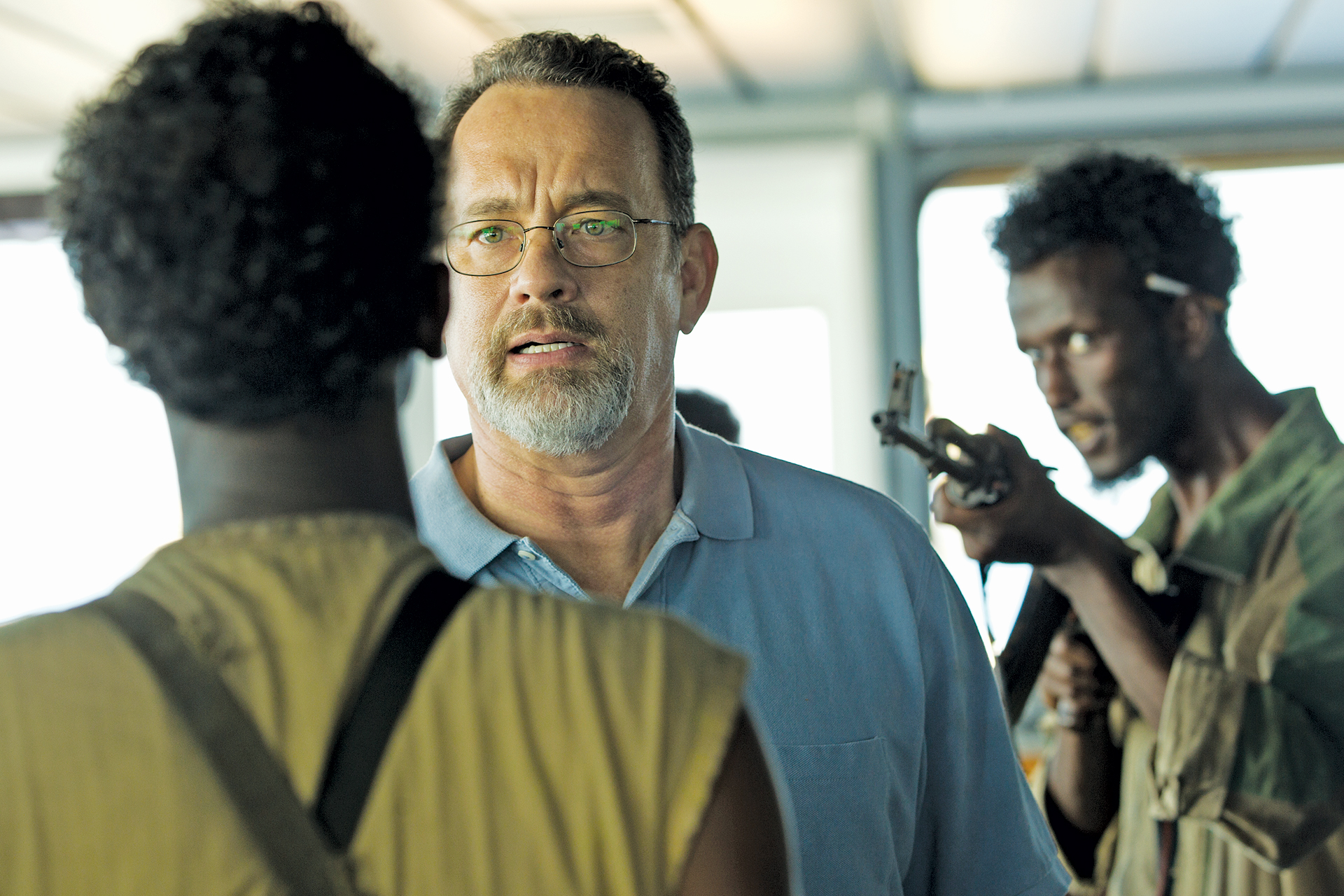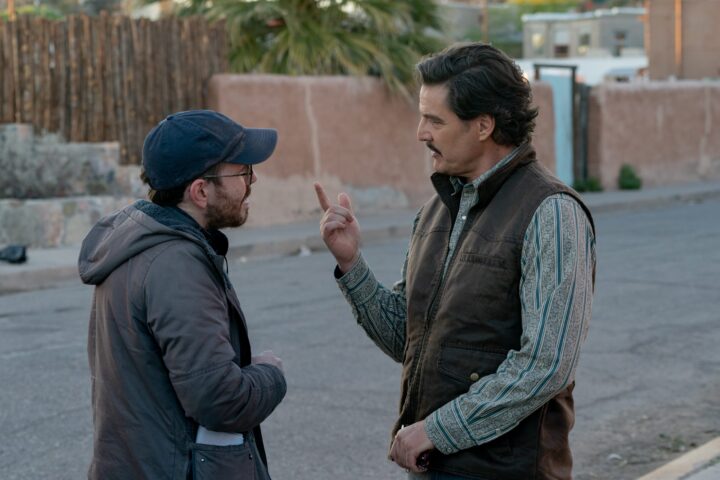Paul Greengrass’ tension epic Captain Philips is a slick and satisfying movie treatment of the 2009 hijacking of an American cargo ship off the coast of Africa, and the subsequent kidnapping of its titular commander at the hands of four, small-time Somali opportunists who quickly found themselves in a lose-lose quagmire with the American military machine.
As written by Billy Ray (Shattered Glass, The Hunger Games), directed by Greengrass and starring Tom Hanks in a dramatic turn, Captain Phillips is, in typically confident, electric Greengrass style, a technically polished, politically potent, thrillingly shot and superbly edited thriller that veers away from what might have been jingoism in the hands of a lesser director and simply presents the facts of the incident with impeccable precision, Ray’s smart screenplay meting out an unexpected humanity for the naïve young criminals way out of their elements.
The first half of Captain Phillips is a smoothly made good guys-bad guys actioner, an upmarket Under Siege classed-up by crisp production values, though not a novel scenario as action movies go. We first meet captain Richard Phillips (Hanks) at his New England home en route to the airport with his wife (Catherine Keener), lamenting their separation and the changing of the world’s stage—it’s a short but important scene suggesting a lived-in weariness but rock-solid foundation. After setting sail, hard-ass Phillips barks commands to the crew while nursing concerns over ship security, heeding reports of recent pirate attacks in the same international waters.
Meanwhile, an armed, agitated Somali beach mob of hungry young men vie for the opportunity to join a band of hijackers plotting to loot unsuspecting American ships for cash and hostages (the real payload, they surmise, is to bring a hostage back to Somali soil). The highly believable casting of the chosen four—a gangly, gaunt and unlikely combo of naiveté and bravado—makes their predicament eminently believable.
The ship, the Maersk Alabama, is a behemoth food freighter with no onboard security or weapons and little room to navigate with any dexterity. In other words, a sitting duck for the two approaching skiffs carrying the hijackers. Slow-moving and without weapons, the Alabama is also practically indefensible, allowing the Somalis easy access.
Bone-thin leader Muse (the terrific Barkhad Abdi, a Somali national now living in Minnesota), quickly deposes Phillips as commander but is unprepared for injuries suffered while canvassing the ship’s labyrinthine engine room (a younger recruit has his feet severely cut by glass and Muse himself captured, hands slashed). Their operation crippled, they reject Phillips’ offer to leave with $30k from the ship’s safe, instead taking the captain hostage, fleeing in an oddly-shaped, bright orange lifeboat. Their plan to get Phillips to Somalia and rake millions for his ransom (“It’s business”) quickly deteriorates when infighting, inexperienced seamanship and the convergence of heavy American military power intervene.
The quartet of pirates—who have just met and know little of each other’s temperaments, arguing nonstop about everything from how to pilot the lifeboat to whether or not to allow Phillips to administer compassionate aid to the injured teenager in their group—are presented as economically feeble and driven by lack of opportunity, not for want but for means. In a series of exchanges between Phillips and Muse, who develop a tentative respect, Ray’s screenplay humanizes their plight to something short of compassion, when they’re not pointing guns and shouting wildly and threatening the captain’s life every few minutes.
Captain Phillips is very much in Greengrass’ wheelhouse of politi-thrillers, and he meets the obvious challenges of filming on high seas and in claustrophobic quarters to deliver a high-energy movie perhaps somewhat lighter in political context than previous outings Bloody Sunday and United 93, but obviously more socially incisive than his two Bourne pictures.
There is probably no other director working today—except Kathryn Bigelow, whose Zero Dark Thirty is called to mind here as Navy SEALs and military intelligence (including numerous ships and helicopters and parachutists) coalesce into a lockstep night sniper operation—who consistently crafts such kicky, enervating, large-scale action and suspense. Yet for the all of the pumped up cinematography and music and skilled sequence-building in Captain Phillips, Greengrass chooses a key moment near the end of the conflict to abruptly drop score and sound to dead silence, and the effect of this quiet finality is really something.
Then comes a moment of acting so unique and raw as not depicted by an American actor in recent memory. Since the details of the incident are public record and outcome known, it’s not a spoiler to mention that Hanks has a scene with a nurse (real-life emergency medics, not actors) where he is called upon to register shock and disorientation, and the actor’s illustration of mixed emotions and limited awareness is deep and and true—and will cinch him an Oscar nod.
4 stars.



